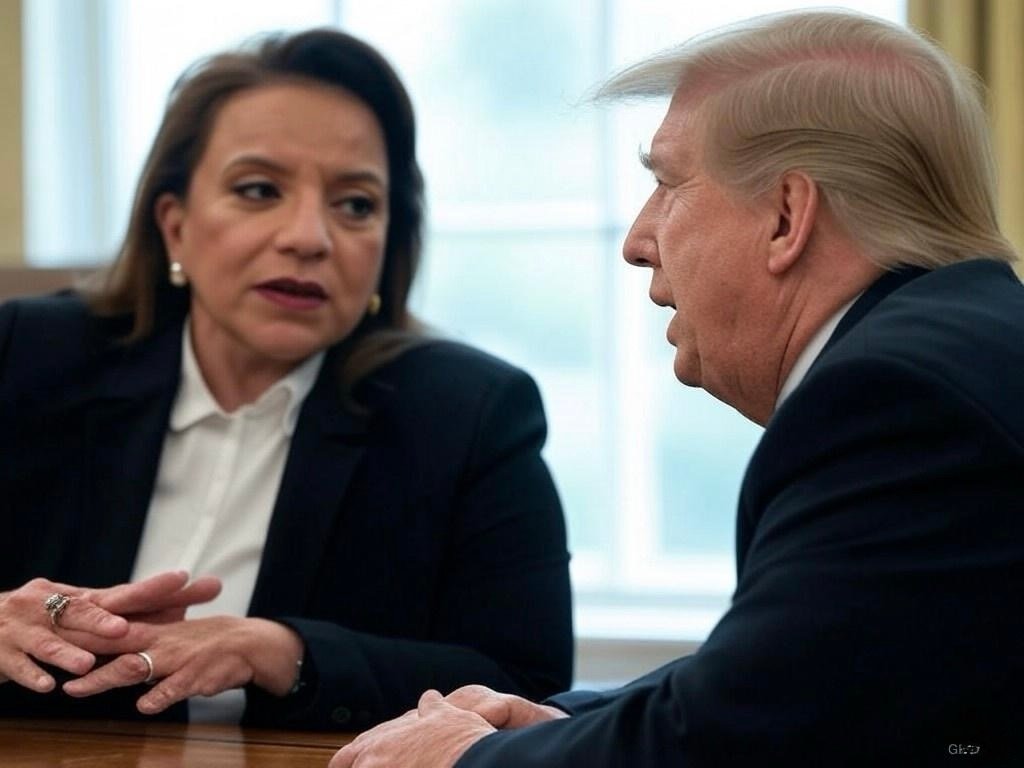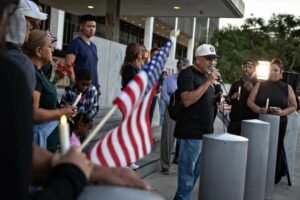DURHAM, NC – Honduras President Xiomara Castro has issued a pointed warning to the United States, stating that her country may reconsider its military cooperation and potentially shut down U.S. military bases in Honduras if mass deportations of Honduran nationals proceed under President Donald Trump’s administration. Her statement underscores growing tensions over U.S. immigration policies and their impact on Central America.
Castro’s Statement on Cooperation
President Castro’s remarks, released in a formal statement, emphasize the economic and social contributions of Honduran migrants in the United States. She expressed hope for constructive dialogue but warned of potential policy shifts:
• On U.S. Bases:
“Faced with a hostile attitude of mass expulsion of our brothers, we would have to consider a change in our policies of cooperation with the United States, especially in the military arena, where, without paying a cent for decades, they maintain military bases in our territory, which in this case would lose all reason to exist in Honduras.”
• On Migrants’ Contributions:
“We hope that the new U.S. administration of democratically elected President Donald Trump will be open to dialogue, constructive and friendly, and will not take unnecessary reprisals against our migrants, who normally make a great contribution to the U.S. economy.”
Why Does the U.S. Maintain Military Bases in Honduras?
The United States operates military installations in Honduras, including Soto Cano Air Base, primarily for regional stability, counter-narcotics operations, and humanitarian missions. These bases are part of a longstanding partnership aimed at addressing organized crime, drug trafficking, and disaster response in Central America.
• Strategic Importance:
Honduras is a key transit country for illicit drugs moving from South America to the U.S., making its cooperation critical in counter-narcotics operations.
• Humanitarian Aid:
U.S. forces stationed in Honduras frequently provide disaster relief and support for emergencies, including hurricane recovery efforts.
The U.S. does not pay Honduras directly for the bases, but the partnership provides economic and security benefits, including training and resources for Honduran military forces.
Economic Realities and Migration
President Castro’s statement also highlights the delicate economic ties between Honduras and its migrant population in the U.S.:
• Remittances:
Honduran migrants in the U.S. send billions of dollars back home annually, comprising nearly 20% of Honduras’s GDP. Mass deportations could disrupt this critical financial lifeline.
• Domestic Challenges:
Honduras faces significant economic and social challenges, including limited job opportunities, corruption, and high levels of poverty. These issues make it difficult for the country to reintegrate large numbers of returning nationals.
While some may argue that returning migrants could bolster the Honduran economy, experts note that the country’s infrastructure and job market are ill-equipped to absorb such a shift.
Broader Implications
President Castro’s remarks bring into focus the complex relationship between U.S. immigration policies and its foreign alliances:
• Diplomatic Relations:
Her comments could strain U.S.-Honduras relations, potentially impacting ongoing military cooperation and humanitarian efforts.
• Regional Stability:
Any disruption in U.S. military operations in Honduras could affect counter-narcotics and security efforts across Central America, potentially exacerbating instability in the region.
A Call for Dialogue
President Castro’s statement appears to leave the door open for negotiations, emphasizing the importance of dialogue and mutual respect in resolving these issues. The Biden-Harris administration’s emphasis on promoting stability in Central America could provide a framework for addressing her concerns.
Stay Informed with the Bull City Citizen
As international tensions rise, The Bull City Citizen remains committed to delivering accurate and comprehensive reporting on the global issues that impact us locally. This developing story underscores the interconnectedness of immigration, foreign policy, and economic stability. Subscribe to The Bull City Citizen for ongoing coverage of U.S.-Central America relations and their broader implications.












